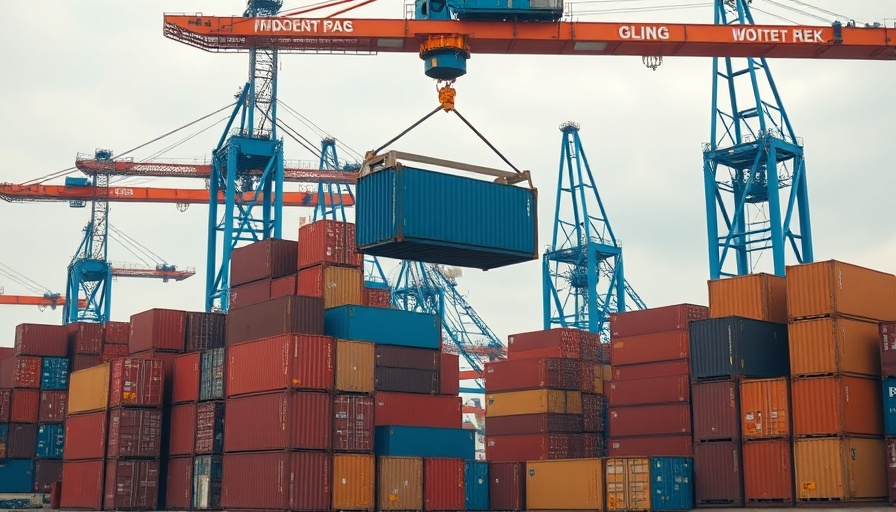
Understanding Tariff Impacts on North America’s Economy
The recent announcement from the White House regarding impending tariffs on Mexico, Canada, and China has significant ramifications for travelers, digital nomads, and expatriates. As these nations are key markets for both trade and tourism, the imposition of a 25% tariff on goods from Mexico and Canada, along with a 10% levy on goods from China, could reshape economic interactions not only across borders but also for expatriates and digital nomads.
The Traveler's Perspective: What to Expect?
For those considering relocation or traveling to North America, these tariffs could lead to increased prices on goods travelers rely upon, including electronics, clothing, and even food items. Enhanced costs might deter some from visiting or settling in these regions, shifting demand to more cost-effective alternatives.
Digital Nomads: Navigating New Financial Pressures
Digital nomads thrive on stable economic conditions and low cost of living. The new tariffs could disrupt local economies and services, making it essential for remote workers to stay informed about potential increases in living costs, fluctuating exchange rates, and the financial viability of their chosen destinations.
How These Tariffs Affect Expat Communities
Expats often rely heavily on imported goods and services from their home countries. An increased financial burden due to tariffs may necessitate lifestyle adjustments, especially in terms of budgeting and consumption. Many expats might find it beneficial to seek local alternatives or reconsider their purchasing habits altogether.
Shifting the Dynamics of North American Trade
The tariffs underscore a pivotal moment in trade relations within North America. This alteration in trade dynamics could result in reduced cooperation and increased tensions among bordering countries. Travel enthusiasts and expatriates may witness a change in cultural exchanges, transportation logistics, and even dietary staples in their daily lives.
The Bigger Picture: Geopolitical Considerations
The initiation of these tariffs is situated within a broader context of geopolitical strategy. It reflects ongoing tensions regarding migration and illegal drugs, suggesting a complex interplay of policy decisions that might impact everything from border security to societal attitudes toward international cooperation. This reality is crucial for travelers and expats alike, as it shapes the environments they enter.
Future Predictions: Where is North America Headed?
Looking forward, if tariffs persist or escalate, economic forecasts suggest possible downturns in tourism, which accounts for a significant part of the South and North American economies. Potential risks of increased costs could lead to reduced travel volumes, affecting not only the economy but also cultural exchanges that enrich international relations.
Conclusion: Adapting to Change
As the dust settles on this major trade decision, it is vital for travelers, digital nomads, and expats to remain adaptive to ongoing changes in economic landscapes. Understanding how tariffs shape these dynamics will empower individuals to make informed decisions about travel and relocation. Keep abreast of legislative changes and seek to foster connections within local communities for continued support and insight in this evolving scenario.
 Add Row
Add Row  Add
Add 




Write A Comment